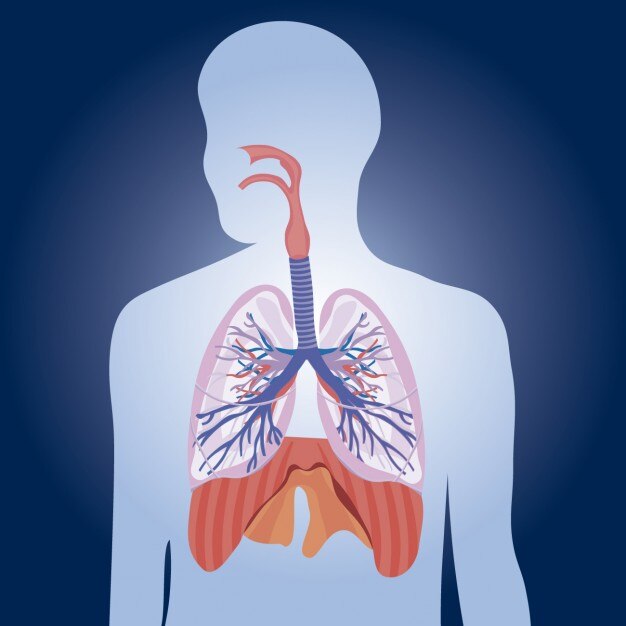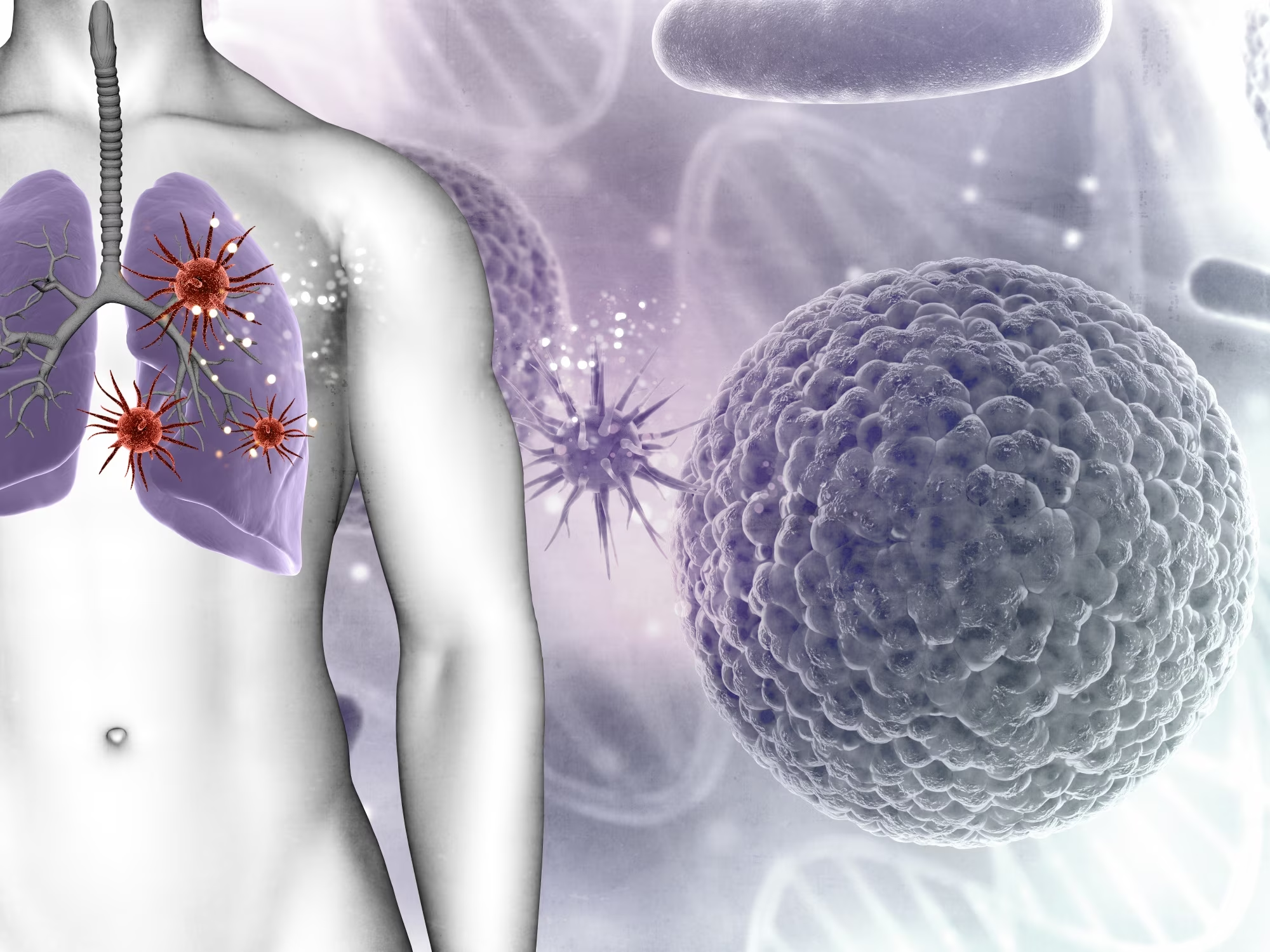Lung Cancer
Introduction
Lung cancer is the leading cause of cancer death in India and worldwide. The incidence of lung cancer in India is still increasing, especially in the elderly. The Department of Thoracic Oncology provides care for patients with primary lung cancer, mediastinal tumors, and pleural tumors. The goals of the department are to provide the highest quality treatment and establish new effective treatments against lung cancer and other thoracic malignancies through innovative clinical and translational research. To provide assistance toward our patients through multidisciplinary care, the staff members of the department work closely with thoracic surgeons, radiation oncologists, pathologists, pharmacists, clinical research coordinators, and psychiatrists who have expertise in these areas. The department includes nine staff physicians. Moreover, residents and trainees from other institutions have joined the Thoracic Oncology Program.

Research activities
Research activities of the department can be classified into four categories: (1) multi-institutional phase III studies to establish new standard treatments against lung cancer; (2) phase I and phase II studies to evaluate new anticancer drugs, (3) pharmacokinetic and pharmacodynamic (PK/PD) studies to investigate interpatient variability, optimal administration schedules and drug-drug interactions; and (4) translational research using clinical samples from bench to bed-side or from bed-side to bench for the development of innovative treatment strategies.

Clinical trials
The department is currently conducting and participating in multi-institutional phase III studies to establish new standard treatments against lung cancer such as the India Clinical Oncology Group trials and global trials conducted by pharmaceutical companies. Study of immune checkpoint inhibitors to evaluate the optimal treatment period, chemoradiotherapy with durvalumab and surgery for superior sulcus.The study of thoracic radiotherapy for ED-SCLC after chemotherapy with immune checkpoint inhibitors (ICIs), a phase III study of chemotherapy with ICIs for NSCLC, are ongoing. The department is also participating in a nationwide screening project of lung cancer with rare driver mutation (LC-SCRUM). The department carried out many clinical trials using TKIs, ICIs, antibody-drug conjugates (ADCs) and bispecific anti-bodies.
In order to make a new drug available for use, we first examine the effects and adverse effects of "drug candidates" in animals in detail, select more promising candidates, and then determine what effects (efficacy) and side effects (safety).
Investigating the efficacy and safety of a drug in humans is called a "clinical trial."
In clinical trials, "drug candidates" are used in humans, so the rights (human rights) and safety of those participating in clinical trials are protected to the maximum extent possible. At the same time, it is necessary to accurately investigate the effects (efficacy) and side effects (safety) of "drug candidates" using scientific methods.
While “treatment” uses “drugs” to cure diseases, “clinical trials” use “drug candidates” for the purpose of examining efficacy and safety in humans, so it also includes research aspects.
Cancer Inheritance and Hereditary Tumors
Currently, it is said that one in two Indian people will be diagnosed with cancer at least once in their lifetime. There is a 65.5% chance of developing some form of cancer in a lifetime for men and 50.2% for women (Cancer Statistics 2021). It is not uncommon to have cancer patients in your family.
Cancer is caused by environmental factors (age, lifestyle (drinking, smoking), viruses, etc.) and genetic factors, and environmental factors are said to be the cause in most cases. For example, in the case of colorectal cancer, about 5% of cancers are thought to be strongly related to genetic factors.


The treatment of lung cancer
The treatment of lung cancer has advanced and changed rapidly in the last 20 years.
In radiological diagnosis, advances in multi-slice CT and MRI have enabled highly accurate diagnostic imaging, and the widespread use of low-dose CT for lung cancer screening has enabled the early detection of lung cancer.
In the field of surgery, minimally invasive surgery using thoracoscopic surgery has become widespread, and recently, robotic surgery has also been expanded to treat lung cancer.
In radiation therapy, lung cancer is treated with less burden on the body by high-precision irradiation technology using Intensive Modulated Radiation Therapy (IMRT) and Volumetric Modulated Arc Therapy (VMAT). It has also become possible in clinical practice.
Drug therapy includes cytotoxic anti-cancer drugs such as cisplatin, molecularly targeted drugs that target specific gene mutations, angiogenesis inhibitors that attack cancer, and immune checkpoint inhibitors that act on cancer immunity. etc., have been clinically implemented.
In pathological diagnosis, not only morphological diagnosis but also genetic diagnosis is important, and in lung cancer, it is already necessary to examine mutations in genes such as EGFR, ALK, ROS-1, BRAF, cMET, NTRK, RET, and KRAS. Patients with these genetic abnormalities may be able to use molecular targeted drugs that suit them.
In recent years, multiple genes can be tested at the same time using next-generation sequencing (NGS), and individualized treatment using genomic medicine is being performed. Since our hospital is also a genome-based hospital, we are actively conducting cancer genetic testing using NGS.
In addition, many new drugs targeting new genes are being investigated, and our hospital is actively conducting clinical trials.
In basic research, new target molecules are discovered and new therapeutic drugs are developed. In addition, new drugs will eventually become ineffective and develop resistance, but the mechanism of drug resistance is being elucidated one after another, and cooperation with research institutes is essential, and we are actively conducting joint research.

We believe that the mission and vision of the Respiratory Centre is to keep up with these advances in medical care and provide the latest medical care, and to become a facility that drives these advances.
In the future, the collective strength of the team will be more important than ever. We believe that it is important to bring out the full potential of all teams at the Respiratory Centre and to develop human resources who will lead the next generation.

Anticancer drug clinical trial (Phase 1 trial)
The trial has several stages. The first phase, a phase 1 trial, carefully examines whether the drug is safe to use.
Phase 1 trials of general drugs are started in healthy adult males, while anticancer drugs have strong drug effects and side effects, so trials are conducted on actual cancer patients.
Phase 1 trials examine the appropriate dose, dosing method, and dosing interval by gradually increasing the dose from a low dose until certain side effects are observed. (In many studies, the same patient is given the same dose.) Furthermore, by examining the amount of the "drug candidate" contained in the blood and urine, we can confirm how the drug behaves in the body. Participating in clinical trials, including this phase 1 trial, has the following pros and cons.
About Advanced Medical Development Department
With the development of various types of new cancer drugs in recent years, early clinical trials, including phase I trials, are the starting point for drug development and are extremely important.
Therefore, the Cancer Hospital established the "Advanced Medical Development Department" to become a base for next-generation clinical development. The Department of Advanced Medical Development promotes early clinical development in order to deliver new cancer drugs to patients as quickly as possible.

In our clinical department, full-time doctors and staff with a wide range of specialized knowledge and experience necessary for the development of new cancer drugs utilize their knowledge and collaborate with each clinical department and department in the hospital to develop their own medicines. We propose clinical trials that are suitable for patients.
